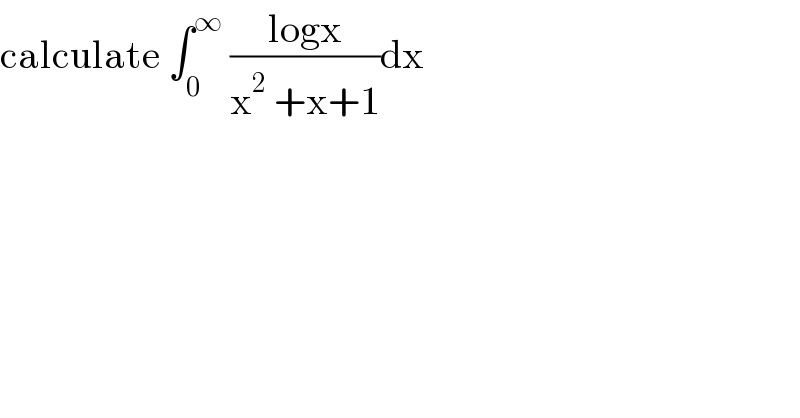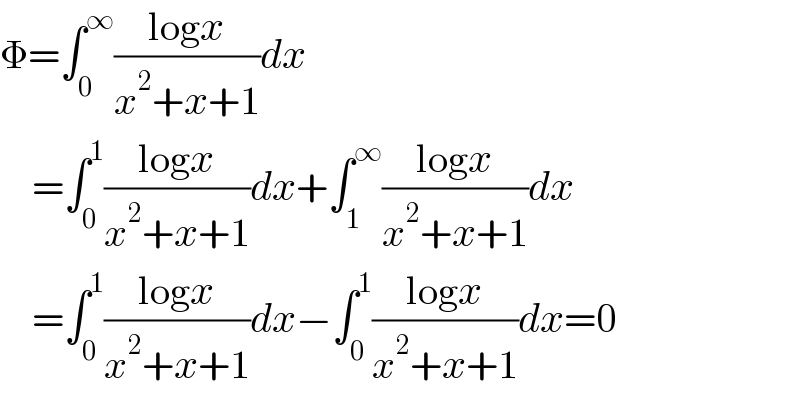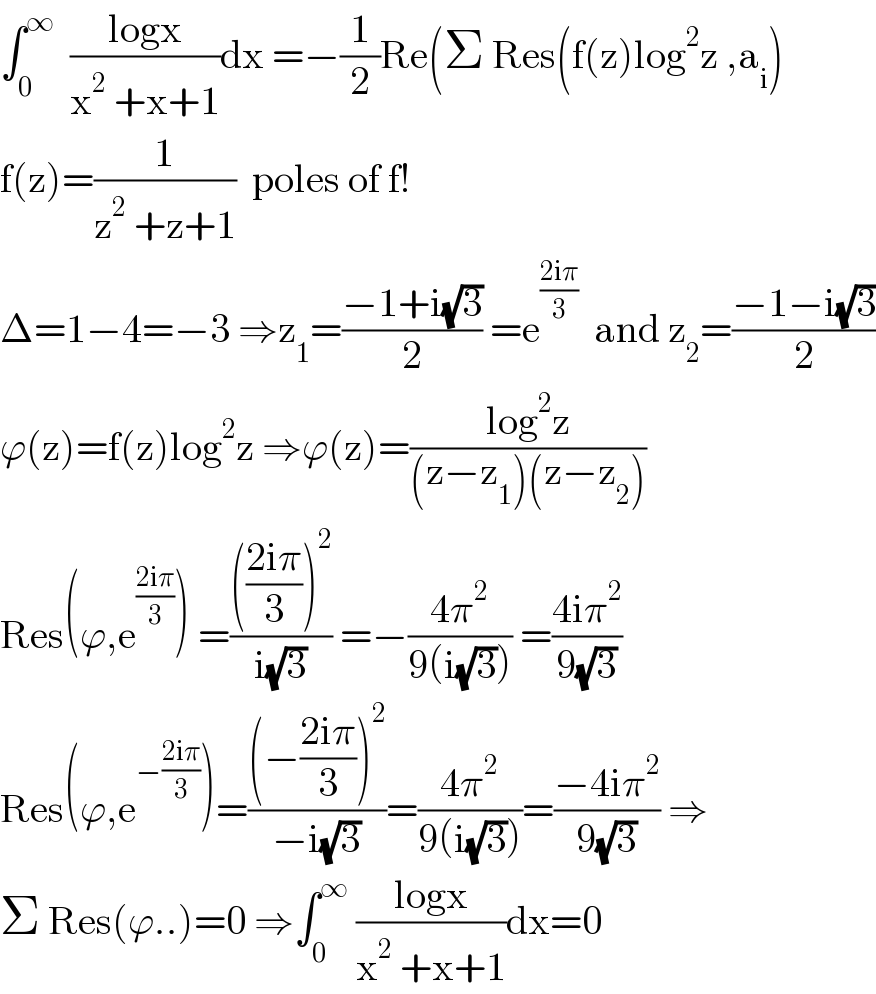
Question and Answers Forum
Question Number 148570 by mathmax by abdo last updated on 29/Jul/21

Answered by Ar Brandon last updated on 29/Jul/21

Answered by mathmax by abdo last updated on 29/Jul/21

| ||
Question and Answers Forum | ||
Question Number 148570 by mathmax by abdo last updated on 29/Jul/21 | ||
 | ||
Answered by Ar Brandon last updated on 29/Jul/21 | ||
 | ||
| ||
Answered by mathmax by abdo last updated on 29/Jul/21 | ||
 | ||
| ||